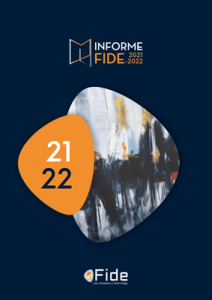Three (3) years ago, the European Commission, after an investigation procedure, decided to sanction with billion dollar fines to all European truck manufacturing companies for having carried out, according to its Decision, anti-competitive practices between 1997 and 2011, focused on the exchange of information on the gross sales prices of the trucks manufactured by said companies and the implementation with delay in technologies to reduce the emission of polluting gases.
This Decision joins many others, issued both by the European Commission and by the Spanish competition authorities, which in recent years have increased investigations of conduct considered anti-competitive, both at European and national level, producing not only an increase in the number of open files, but also an increase in the amount of fines imposed.
And in the vast majority of cases, the disciplinary proceedings have been initiated from the complaint of one of the participants of the conduct, who informs the Commission of the same and includes the other operators in his complaint, thereby , get the benefit of not being sanctioned to any amount of fine. The company avails itself of what is called a leniency procedure and provokes the investigation of the competition defense authorities, which in most cases casos end up sanctioning the rest of the participants.
As on previous occasions, the sanction of the competition authorities, in this caso but it has also happened with the sanctions of the Spanish authorities, it has led to a new, incipient and increasingly numerous litigation in the courts, not only in the Spanish, but also in the rest of the European Community countries.
We are not facing proceedings filed by consumers against large companies for having abused a dominant position, but rather procedures have been initiated by all those individuals or companies that, whether or not they provide their services in the world of transport, acquired trucks of manufacturers sanctioned between 1997 and 2011.
The complainants allege that those practices for which the manufacturers have been penalized have generated a overpriced in the final payment they had to make when acquiring the truck or trucks, as well as in the damage that the late introduction of new technologies in reducing polluting gases has meant for them.
And that is precisely where the discrepancies that we refer to in the title of this article begin. And this because claims have begun to be filed in which the Damage calculation differs markedly between each of them, depending on the form and system in which said calculation is carried out, which, obviously, depends on the professional who prepares the corresponding damage report.
And, on the other hand, in the field of manufacturers, they defend that the sanctions imposed have not produced effects market overprice nor are these calculations adequate to demonstrate the existence of any damage.
Therefore, as we can verify, not even the claimants of the damages agree on the amount of the damages caused and the way to calculate them, even more so when the manufacturers maintain that such damages have not existed.
This incipient litigation comes to show us the increasing loss of the "fear of litigation" that exists in our society and among individuals, which means that the collapse of the Courts increases exponentially, since this particular issue is joined by others many well known to all (floor clauses, multi-currency mortgages, abusive interest rates ...). The congestion in the courts is on its way to becoming something endemic and difficult to solve in the short term, unless whoever has the responsibility to act - the executive branch - does not use sufficient and adequate means to save the situation or, at least, alleviate it minimally.
And, in the caso that concerns us, the problem is aggravated by the fact that the existing divergences between plaintiffs and defendants - something logical - and, even, between the plaintiffs themselves, are transferred to the same Courts of First Instance, which are dictating disparate and divergent sentences Regarding the appreciation of these damages: some dismiss the claims for insufficient accreditation and those who estimate them calculate this surcharge by applying very different percentages.
Therefore, we will have to await the decision of our Supreme Court on the issues raised. It will be the moment for the divergences to be solved, although this will happen in a long time, which opens a prolonged period of uncertainty until the final solution.
Juan Manuel de Castro Aragonese

Managing Partner of the Litigation, Insolvency and Arbitration Law Area of Gómez Acebo y Pombo. Before, it was at the Rousaud Costas Duran office. Commercial magistrate on leave of absence, he has a solid and recognized career as a lawyer, both in the public and private spheres. He has been a magistrate for ten years, six of them as director of the Commercial Court No. 10 in Barcelona, in which he has led important judicial and bankruptcy proceedings. Expert in large commercial processes, D&O, corporate conflicts, intellectual property, unfair competition and large claims. In addition to his career in Public Administration, he has practiced as a commercial and procedural lawyer for more than 18 years in prestigious international firms such as Arthur Andersen, Baker & McKenzie and Clifford Chance. Law degree from the Complutense University of Madrid. Master in Law, Business from the Free School of Economics and Law of Madrid.



















